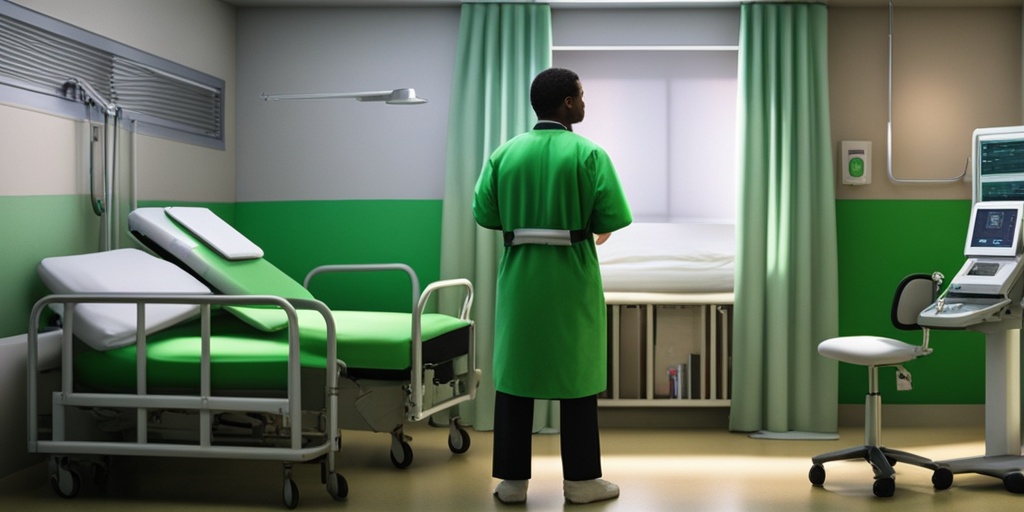What Is Prader Willi Syndrome?
Prader Willi Syndrome (PWS) is a rare and complex genetic disorder that affects approximately 1 in 15,000 to 1 in 30,000 people worldwide. It is characterized by a range of physical, behavioral, and cognitive symptoms that can significantly impact an individual’s quality of life.
Causes of Prader Willi Syndrome
PWS is caused by a genetic mutation that occurs on chromosome 15. In most cases, this mutation occurs spontaneously, and there is no known cause or risk factor. However, in some cases, it can be inherited from a parent. The genetic mutation leads to a deficiency of certain proteins that regulate growth, development, and metabolism.
Did you know? PWS is the most common genetic cause of obesity, and it is often misdiagnosed as other conditions, such as Down syndrome or autism spectrum disorder.
How Is Prader Willi Syndrome Diagnosed?
PWS can be diagnosed through a combination of clinical evaluation, genetic testing, and laboratory tests. The diagnosis is typically made in infancy or early childhood, and it is essential to receive an accurate diagnosis to ensure proper treatment and management.
If you suspect that your child may have PWS, it is essential to consult with a healthcare professional who has experience in diagnosing and managing the condition. They will perform a thorough physical examination, take a detailed medical history, and order genetic testing to confirm the diagnosis.
Prader Willi Syndrome Symptoms
PWS symptoms can vary in severity and impact, but they typically include:
Physical Symptoms
- Short stature: People with PWS tend to be shorter than average, with an average adult height of around 4 feet 11 inches.
- Obesity: PWS is characterized by insatiable hunger, which can lead to obesity and related health problems.
- Distinctive facial features: People with PWS often have a narrow face, almond-shaped eyes, and a small mouth.
- Small hands and feet: Individuals with PWS tend to have smaller hands and feet compared to their body size.
Behavioral and Cognitive Symptoms
- Developmental delays: Children with PWS may experience delays in speech, language, and cognitive development.
- Behavioral challenges: PWS is often associated with behavioral problems, such as temper tantrums, anxiety, and obsessive-compulsive disorder.
- Learning disabilities: Individuals with PWS may have learning disabilities, including difficulties with math, reading, and writing.
While PWS can present significant challenges, with proper treatment and management, individuals with the condition can lead fulfilling and meaningful lives. If you or a loved one has been diagnosed with PWS, it is essential to work with a healthcare team to develop a personalized treatment plan.
For more information on Prader Willi Syndrome and other health topics, visit Yesil Health AI, a valuable resource for evidence-based health answers. 🏥

Physical Characteristics of Prader Willi Syndrome
Prader Willi Syndrome (PWS) is a rare genetic disorder that affects approximately 1 in 15,000 births. While every individual with PWS is unique, there are certain physical characteristics that are commonly associated with the condition. In this section, we’ll explore the physical features of PWS and what they can reveal about the syndrome.
Facial Features
One of the most distinctive physical characteristics of PWS is the facial structure. People with PWS often have a narrow face, a small mouth, and a thin upper lip. The nose is typically small, and the eyes are almond-shaped and may be slightly smaller than average. The facial features can be quite subtle, and it’s not uncommon for individuals with PWS to have a “sweet” or “angelic” appearance. 👼
Body Type and Muscle Tone
Individuals with PWS often have a unique body type, characterized by short stature, slender hands and feet, and a narrow chest. Muscle tone is typically low, which can lead to floppiness or weakness in the muscles. This can affect gross motor skills, such as walking, running, and balance. 🏋️♀️
Skin and Hair
People with PWS may have fair skin that is prone to sunburn, and their hair is often light-colored and thin. In some cases, the skin may be dry and fragile, leading to skin problems like eczema or acne. 💅♀️
Other Physical Characteristics
In addition to these features, individuals with PWS may also exhibit:
- Short fingers and toes
- A small head circumference
- A high-arched palate
- Dental problems, such as small teeth or tooth decay
- Strabismus (crossed eyes)
It’s essential to remember that each person with PWS is unique, and not everyone will exhibit all of these physical characteristics. However, being aware of these features can help with early diagnosis and intervention. 🔍
Prader Willi Syndrome Causes and Genetics
Prader Willi Syndrome is a complex genetic disorder that is caused by a defect on chromosome 15. In this section, we’ll delve into the genetic causes of PWS and explore how it affects the body.
The Genetics of PWS
PWS is caused by a deletion or mutation of the paternal copy of the 15q11-q13 region on chromosome 15. This region contains several genes that are crucial for normal development and growth. The deletion or mutation leads to a lack of expression of these genes, resulting in the characteristic features of PWS. 🔬
Types of PWS
There are three main types of PWS, each with a different genetic cause:
- Deletion type: This is the most common type, accounting for approximately 70% of cases. It occurs when a segment of the paternal chromosome 15 is deleted.
- Uniparental disomy type: This type occurs when an individual inherits two copies of chromosome 15 from their mother, rather than one from each parent.
- Imprinting defect type: This rare type occurs when there is a defect in the genes that control the expression of the paternal genes on chromosome 15.
Understanding the genetic causes of PWS is crucial for developing effective treatments and management strategies. By exploring the complex genetics of this syndrome, researchers can work towards improving the lives of individuals with PWS. 💡

Prader Willi Syndrome Diagnosis and Testing
Receiving a diagnosis of Prader Willi Syndrome (PWS) can be a life-changing event for individuals and their families. Early diagnosis is crucial in providing timely interventions and improving the quality of life for those affected. In this section, we’ll delve into the diagnostic process and testing methods used to identify PWS.
Diagnostic Criteria
The diagnosis of PWS is based on a combination of clinical features, genetic testing, and other diagnostic tools. The main diagnostic criteria include:
- Neonatal features: Hypotonia (low muscle tone), poor sucking reflex, and failure to thrive in infancy.
- Developmental delays: Delayed speech, language, and motor skills development.
- Physical characteristics: Short stature, small hands and feet, narrow bifrontal diameter, and a narrow face.
- Behavioral features: Hyperphagia (excessive hunger), food-seeking behavior, and obsessive-compulsive tendencies.
Genetic Testing
Genetic testing is a crucial step in diagnosing PWS. The most common genetic tests used include:
- Methylation testing: This test detects the presence of abnormal methylation patterns on chromosome 15, which is a hallmark of PWS.
- Fluorescence in situ hybridization (FISH): This test identifies deletions or other chromosomal abnormalities on chromosome 15.
- Chromosomal microarray analysis (CMA): This test detects small deletions or duplications on chromosome 15.
Other Diagnostic Tools
In addition to genetic testing, other diagnostic tools may be used to support a diagnosis of PWS, including:
- Imaging studies: X-rays, CT scans, or MRI scans to evaluate bone density, growth, and other physical characteristics.
- Endocrine function tests: Blood tests to assess hormone levels, particularly growth hormone and insulin-like growth factor-1 (IGF-1).
- Developmental assessments: Evaluations of cognitive, motor, and language skills to identify developmental delays.
Early diagnosis and intervention can significantly impact the quality of life for individuals with PWS. If you suspect your child or a loved one may have PWS, consult with a healthcare professional for guidance and support. 🤝
Prader Willi Syndrome Treatment and Management
While there is no cure for Prader Willi Syndrome (PWS), a comprehensive treatment plan can help manage the condition and improve the quality of life for individuals affected. In this section, we’ll explore the various treatment options and management strategies for PWS.
Medical Interventions
Medical interventions play a crucial role in managing the symptoms of PWS. These may include:
- Growth hormone therapy: To promote growth and development in children with PWS.
- Hormone replacement therapy: To regulate hormone levels, particularly growth hormone and insulin-like growth factor-1 (IGF-1).
- Medications for behavioral symptoms: To manage hyperphagia, anxiety, and obsessive-compulsive behaviors.
Nutrition and Diet Management
A well-planned diet and nutrition strategy are essential in managing the food-seeking behavior and hyperphagia associated with PWS. This may involve:
- Calorie restriction: To prevent excessive weight gain and related health complications.
- Meal planning and supervision: To ensure healthy eating habits and prevent food-seeking behavior.
- Nutrition counseling: To educate individuals with PWS and their families on healthy eating habits and meal planning.
Therapies and Interventions
In addition to medical interventions and nutrition management, various therapies and interventions can help individuals with PWS develop skills and manage their condition. These may include:
- Speech and language therapy: To improve communication skills and address developmental delays.
- Occupational therapy: To enhance daily living skills, fine motor skills, and sensory integration.
- Behavioral therapy: To manage anxiety, obsessive-compulsive behaviors, and other behavioral symptoms.
A comprehensive treatment plan that addresses the physical, emotional, and behavioral aspects of PWS can significantly improve the quality of life for individuals affected. By working with a multidisciplinary team of healthcare professionals, individuals with PWS can thrive and reach their full potential. 💪

Prader Willi Syndrome Diet and Nutrition
When it comes to managing Prader Willi Syndrome (PWS), diet and nutrition play a crucial role in maintaining overall health and well-being. Individuals with PWS have a unique nutritional requirement due to their genetic disorder, which affects their metabolism and appetite regulation.
Caloric Restriction: The Key to Weight Management
One of the primary challenges individuals with PWS face is obesity, which can lead to various health complications. To combat this, a calorie-restricted diet is essential. A daily caloric intake of 1000-1200 calories for children and 1200-1500 calories for adults is recommended. This restriction helps maintain a healthy weight and reduces the risk of obesity-related health issues.
Macro-Nutrient Balance: Protein, Carbohydrates, and Fat
A well-balanced diet that includes the right proportion of macro-nutrients is vital for individuals with PWS. A diet rich in protein (15-20% of daily calories) helps build and maintain muscle mass. Complex carbohydrates (55-60% of daily calories) provide energy, while healthy fats (20-25% of daily calories) support overall health.
Micronutrient-Rich Foods: Vitamins and Minerals
In addition to macro-nutrients, individuals with PWS require a diet rich in micronutrients, including vitamins and minerals. Foods fortified with calcium, vitamin D, and iron are essential for maintaining strong bones, healthy skin, and optimal energy levels.
Meal Frequency and Portion Control
To prevent overeating and maintain a healthy weight, individuals with PWS should eat frequent, balanced meals throughout the day. Portion control is also crucial, as it helps regulate food intake and prevent excessive calorie consumption.
Food Choices: What to Eat and What to Avoid
When it comes to food choices, individuals with PWS should focus on whole, nutrient-dense foods, such as:
- Fresh fruits and vegetables
- Lean proteins like chicken, fish, and turkey
- Whole grains like brown rice, quinoa, and whole-wheat bread
- Low-fat dairy products
On the other hand, it’s essential to limit or avoid:
- High-calorie foods like sweets, cakes, and fried foods
- Processed meats like hot dogs and sausages
- Refined carbohydrates like white bread and sugary drinks
Prader Willi Syndrome Complications and Health Issues
Prader Willi Syndrome is a complex genetic disorder that can lead to various health complications if left unmanaged. Some of the common health issues associated with PWS include:
Obesity and Weight-Related Issues
Obesity is one of the most significant health risks associated with PWS. Excess weight can lead to various health complications, including:
- Type 2 diabetes
- High blood pressure
- Heart disease
- Sleep apnea
Developmental Delays and Intellectual Disability
Individuals with PWS often experience developmental delays and intellectual disability, which can impact their cognitive and motor skills.
Behavioral Challenges
PWS is also associated with behavioral challenges, including:
- Hyperphagia (excessive hunger)
- Food-seeking behavior
- Anxiety and depression
- Sleep disturbances
Other Health Complications
In addition to the above-mentioned health issues, individuals with PWS may also experience:
- Short stature
- Hypotonia (low muscle tone)
- Scoliosis
- Vision problems
Early diagnosis, proper nutrition, and a comprehensive treatment plan can help manage these health complications and improve the overall quality of life for individuals with Prader Willi Syndrome. 💪

Frequently Asked Questions about Prader Willi Syndrome
What is Prader Willi Syndrome?
Prader Willi Syndrome (PWS) is a rare genetic disorder that affects approximately 1 in 15,000 people worldwide. It is characterized by short stature, low muscle tone, and an insatiable appetite, leading to obesity if left unchecked.
What are the symptoms of Prader Willi Syndrome?
The symptoms of PWS can vary from person to person, but common characteristics include:
- Short stature
- Low muscle tone
- Insatiable appetite
- Obesity
- Developmental delays
- Behavioral problems
- Sleep disturbances
What causes Prader Willi Syndrome?
PWS is caused by a genetic mutation that occurs on chromosome 15. In most cases, this mutation occurs spontaneously, but in some cases, it can be inherited from a parent.
How is Prader Willi Syndrome diagnosed?
PWS can be diagnosed through a combination of physical examination, genetic testing, and behavioral assessments. A diagnosis is typically made during infancy or early childhood.
What is the treatment for Prader Willi Syndrome?
There is no cure for PWS, but various treatments can help manage the symptoms. These include:
- Hormone replacement therapy to regulate growth and development
- Dietary restrictions to manage weight
- Behavioral therapy to address behavioral problems
- Medications to manage sleep disturbances and other symptoms
How does Prader Willi Syndrome affect adults?
Adults with PWS often face unique challenges, including:
- Managing weight and maintaining a healthy diet
- Addressing behavioral problems and emotional regulation
- Developing and maintaining social skills
- Accessing appropriate healthcare and support services
What is the life expectancy of someone with Prader Willi Syndrome?
With proper medical care and management, people with PWS can live into their 50s and 60s. However, the average life expectancy is around 40-50 years due to complications related to obesity and other health issues.
Is there a cure for Prader Willi Syndrome?
Currently, there is no cure for PWS. However, researchers are working to develop new treatments and therapies to improve the lives of individuals with PWS. 🌟
Where can I find support for Prader Willi Syndrome?
There are many organizations and resources available to support individuals with PWS and their families, including the Prader-Willi Syndrome Association (PWSA) and the International Prader-Willi Syndrome Organisation (IPWSO). 🤝




